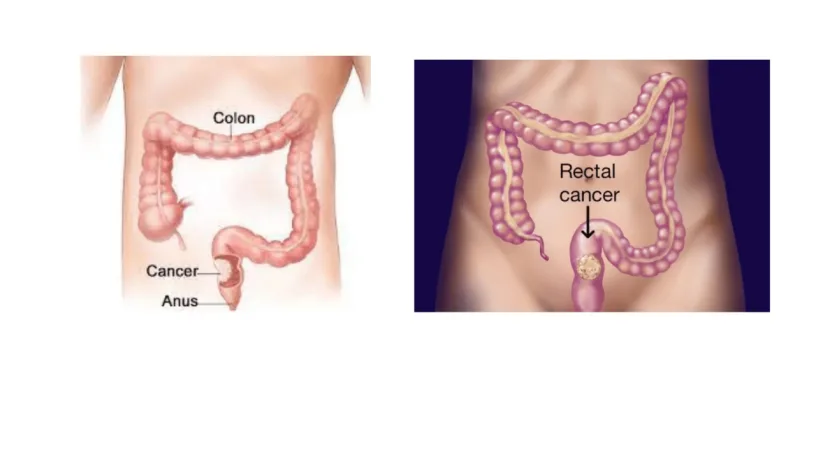All Insurance Covered
( Cashless / Reimbursement )



















Star Hospital is the best option for Rectum Cancer Surgery in Jalandhar. Rectal Cancer is a form of cancer; that starts developing in the rectum area. A couple of final inches of the large intestine are the rectum. It begins at the last part of the final section of the colon. And it ends up reaching a quite short, restricted passage going to the anus. Cancer present within the rectum area (rectum cancer) and cancer within the colon (colon cancer); is usually regarded as colorectal cancer together.


While both colon and rectal cancers hold similarities in several ways, still their treatments are much different from each other. The rectum is located in a highly compact space, becomes challenging to separate it from the other structures and organs of the body. Rectal cancer surgery becomes much more complicated due to tight spacing. Long-term survival was not so common for patients with rectal cancer in the past times, even after getting extensive treatment. We must be grateful for the advancements in Rectum Cancer treatment that evolved over the last couple of decades. Nowadays, the survival rates of rectal cancer have significantly improved. You can contact us for rectum surgery in Jalandhar.
Spotlessly clean, profoundly caring. Our hospital ensures a pristine environment for your well-being
Our hospital has advanced technology gadgets and the best equipment in every field.
Conveniently located at the heart of the city, our hospital offers easy access and exceptional care in a prime city center location

Firstly, the most common symptom is rectal bleeding..
According to the experts, it doesn’t have any exact cause. When healthy cells in the rectum experience genetic alterations or mutations, it can lead to rectal cancer. The instructions that inform a cell what to do are encoded in its DNA.
The alterations instruct the cells to proliferate uncontrollably and to survive after healthy cells have died. Cells can build up to develop a tumor. The cancer cells can spread over time and kill any neighboring healthy tissue. It is also possible for malignant cells to separate and spread (metastasize) to other areas of the body.
It is unknown what causes the mutations that lead to the formation of rectal
Diagnosis
During the screening test, rectal cancer can be found or it may be based on your symptoms. these are some tests and procedures which help to confirm the diagnosis:
With the help of the scope examine the inside of your colon and rectum.
For testing purposes remove a sample of tissue.
Colonoscopy
Biopsy
Treatment
Sometimes rectal cancer treatment involves a combination of therapies like chemotherapy and radiation therapy which help to kill cancer cells after surgery. if your surgeons are worried that the cancer can’t be removed completely without hurting nearby organs, your doctor may suggest a combination of chemotherapy and radiation therapy as your initial treatment. These combined treatments make it easier to remove during an operation.
Surgery
Chemotherapy
Radiation therapy
Combined chemotherapy and radiation therapy
Drug therapy
Immunotherapy
cancer in the majority of cases.
Local excision, transanal resection, low anterior resection, abdominoperineal resection, and, in certain circumstances, complete proctocolectomy are common surgical treatments for rectal cancer. The location within the rectum, the patient’s general health, and the cancer stage all influence the technique that is chosen.
The length of recuperation after surgery for rectal cancer varies based on the kind of treatment and the health of the patient. In general, symptoms include discomfort, exhaustion, altered bowel habits, and brief limitations on physical activity. Patients may need the assistance of medical specialists, such as physical therapists or ostomy nurses, to handle any difficulties that may develop during their recuperation, which might take several weeks to months. It is essential to schedule follow-up visits with the surgical team and oncologists in order to track developments and resolve any concerns.
EXCELLENTTrustindex verifies that the original source of the review is Google. Thank you doctor Mandeep Kaur. I had a Positive result after 2 weeks of my IUI I am so happy I was waiting for so long to concive and to see 2 lines on my pregnancy test but every time that was unsuccessful but this was my first try with IUI and that’s go successfully thank you so much. 😊😊Posted onTrustindex verifies that the original source of the review is Google. Great experience with Dr. Mandeep and staff of the hospital.Posted onTrustindex verifies that the original source of the review is Google. My experience is very goodPosted onTrustindex verifies that the original source of the review is Google. Great Staff With good facilitiesPosted onTrustindex verifies that the original source of the review is Google. Thank you so much Dr mandeep from the bottom of hearts for taking such good care. Because of your professionalism and great smiles, we felt like we were in good hands and that gave us peace of mind towards the big day.Posted onTrustindex verifies that the original source of the review is Google. I got my friend’s weight loss surgery done at Star Hospital. We were impressed by Dr Ahluwalia’s clarity of thought on weight loss and Bariatric Surgery. We visited some other hospitals before and were always confused as their versions were very different but here we got answers to all our questions in a very clear way and my friend could gather courage to finally get his Bariatric Surgery done and start living a normal life again. Procedure went smooth as was told and we were out out of hospital very next day. Now we regret delaying this for years!Posted onTrustindex verifies that the original source of the review is Google. Dr Mandeep is a very hardworking and nice doctor.my result came positive and I'm very thankful to mam and all the staff members 🙏🙏